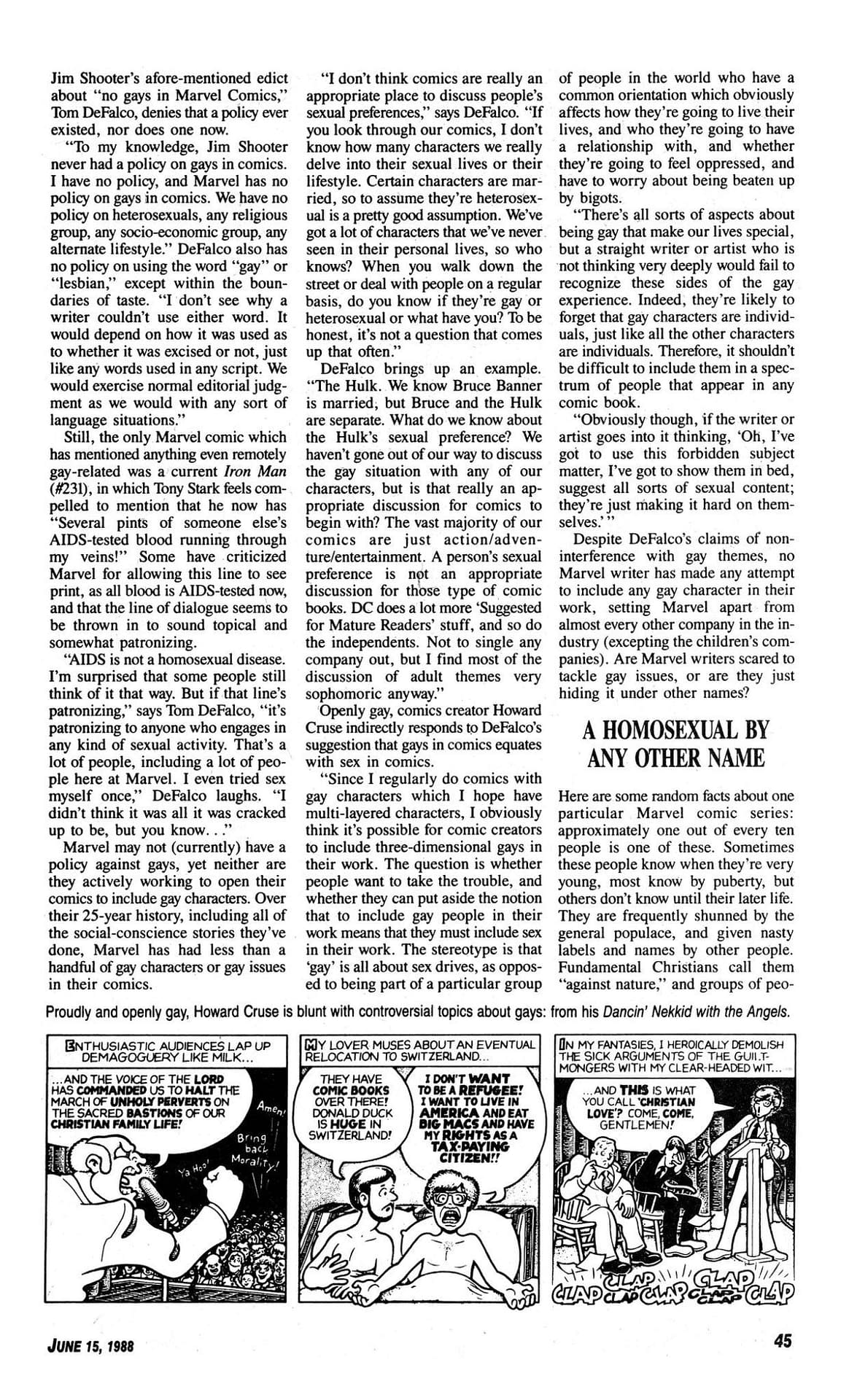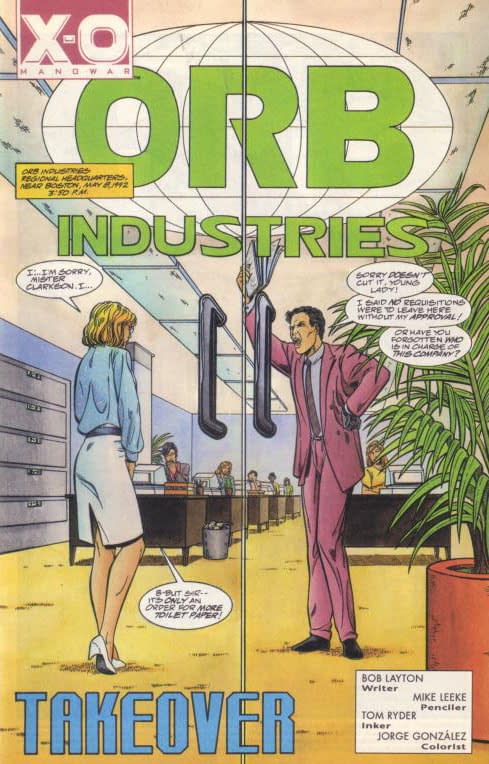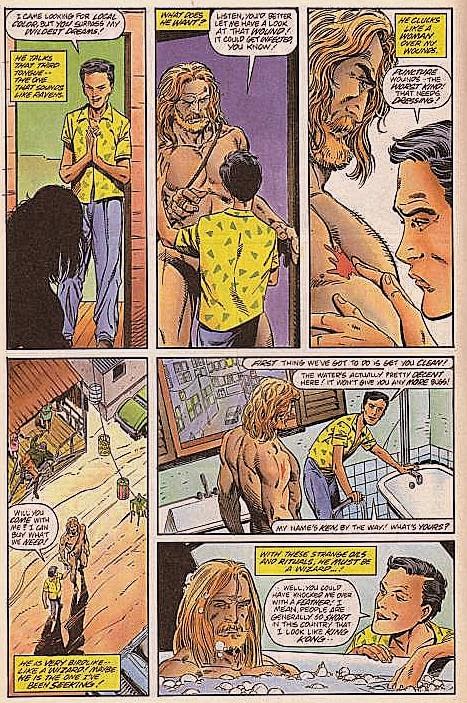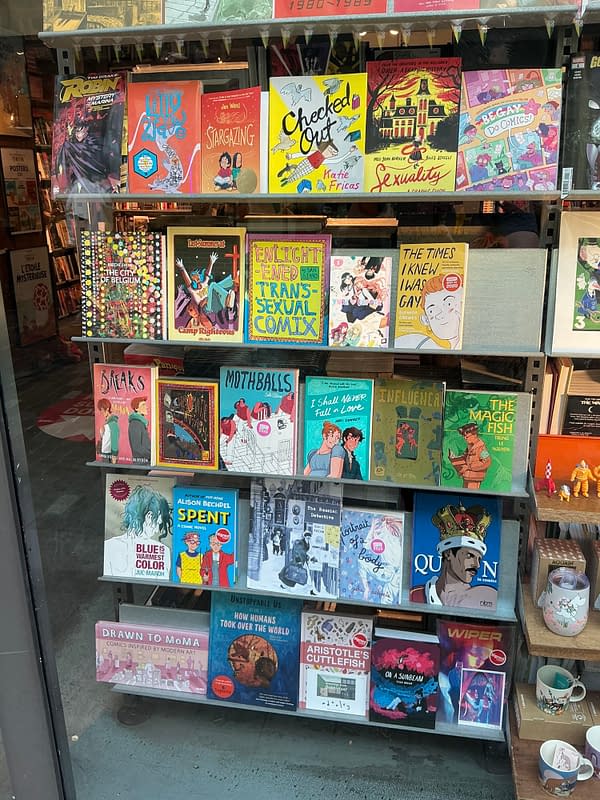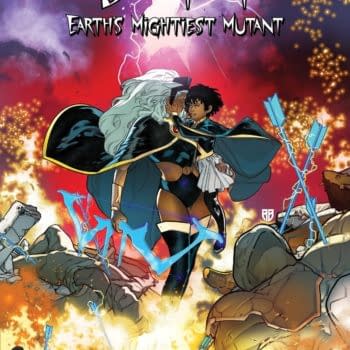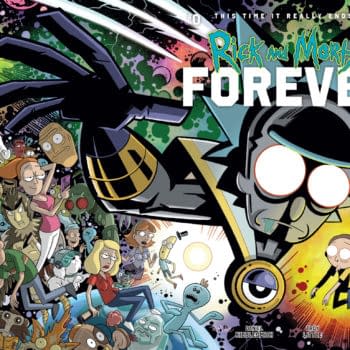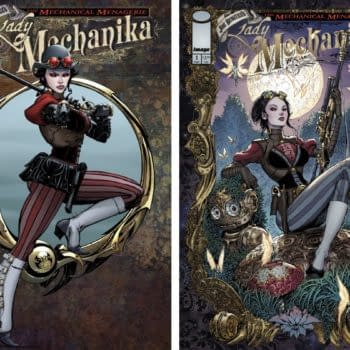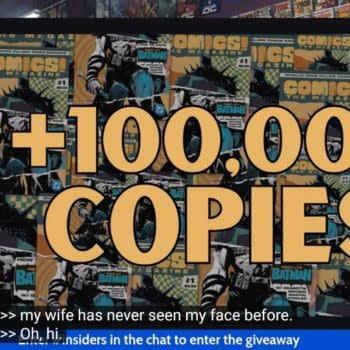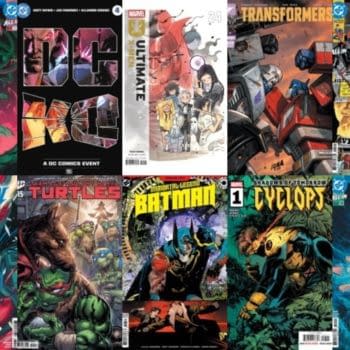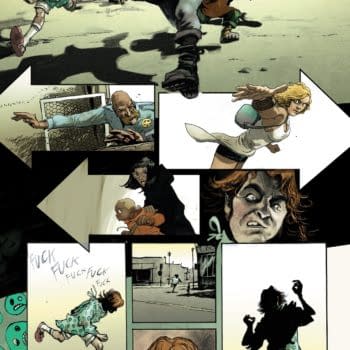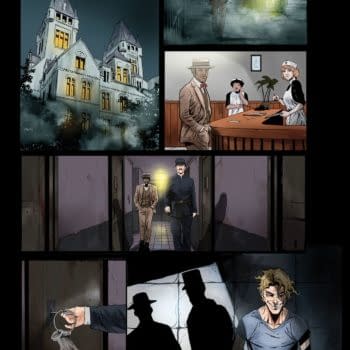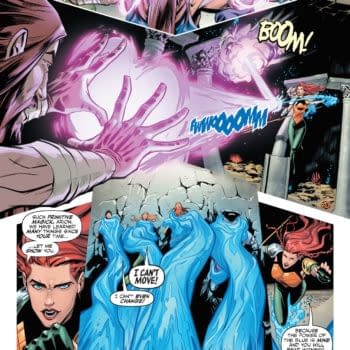Posted in: Comics, Comics Publishers, Current News, Marvel Comics, X-Men | Tagged: Jim Shooter, shooterfiles
Jim Shooter And His Rule About Gay People In Comics
Jim Shooter and his rule about gay people in comics, as seen by Andy Mangels
Article Summary
- Jim Shooter's Marvel tenure involved a "No gays in the Marvel Universe" policy, confirmed by several creators.
- A controversial Rampaging Hulk story depicted gay stereotypes, sparking backlash from LGBTQ advocates.
- Andy Mangels and others recount Shooter’s defensiveness and a legacy marked by exclusion of queer creators.
- Despite industry progress since, Jim Shooter's impact on comics in this regard remains widely debated today.
This week saw the passing of Jim Shooter, writer, artist, editor, publisher and Editor-In-Chief at Marvel, Valiant, Defiant and Broadway Comics. Among all the tributes made to the man and his impact on the comic book industry, caused it, as Bleeding Cool described it, to "grow up", there are plenty of anecdotes that swing all over the place regarding the man. And more often than not, as well as discussion about his rules, there using the word, "complicated". Former Marvel/DC writer, editor and gay activist, founder of the Gays In Comics panel at San Diego Comic-Con, and for years the most prominent out creator in mainstream comics, Andy Mangels picked up on that yesterday, posting to Facebook an article he wrote for Amazing Heroes about gay culture in comics back in the nineties, and then posting further;
"REGARDING JIM SHOOTER'S DEATH …
I'm seeing a lot of tributes, and a lot of them using the word "complicated." Well, I'll add one more word: Homophobic In Rampaging Hulk magazine in 1980, Shooter wrote a damning story about Bruce Banner almost being raped at the YMCA by two lisping, mincing, queens. So horrific was it that it made newspaper and magazine stories at the time (Advocate, Village Voice, and Omni among them). I later wrote about in Amazing Heroes #143-144 and again in The Advocate. Throughout the years, Shooter was alternately defensive, angry, and defensively angry about people's reactions to the blatantly awful story. On his blog (especially in the comments), he defended it, even against the words of gay ex-Marvel editor Roger Klorese."
In the comments on his blog back in 2011, he was asked by a reader called Larry,
"I would love to know more about was your involvement in The Hulk magazine #23, the story where Bruce Banner is nearly raped in a YMCA shower. From memory, the story was quite controversial and resulted in an outpouring of mostly negative letters that were published in the letters column for two issues. I would love to know what your inspiration to write the story was and the fallout that occurred afterwards."
And Jim Shooter replied back then, saying,
"A friend of mine at the age of 15 — maybe 16, not sure — had been attacked in exactly the same way at the McBurney "Y," and escaped, as Banner did. That scene was a small bit, not by a longshot the focus of the story. I was a charter subscriber to New Woman Magazine, which had run a series of articles about rape, and in particular one about "Post Rape Syndrome." Many rape victims are in shock during the actual attack, almost numb and disbelieving. Their reactions — anger, horror, humiliation, the whole emotional gamut, often do not set in until afterward. I thought, what if, for once, Banner did not turn into the Hulk when it was convenient, but only afterwards, when the reactions set in, when it wasn't convenient. The bad guys, to me, were just that — bad guys. Marvel was an equal opportunity employer. Anyone could be a bad guy. It never occurred to me that a couple of bad guys could be interpreted as a sweeping indictment of gay people. As far as I know, we received a total of six letters regarding that issue, two positive, two neutral and two negative. I believe we printed all of them. I wrote personal replies to the negative ones. The comment I received that meant the most to me was Stan's. He was worried when he heard about the story. In particular, he was worried that it might offend the producers of the Hulk TV show. Then he read it. He called me (he was in LA) and said it was the best comics story he ever read. Stan, as you know, is prone to hyperbole, but clearly, he liked it. He also told me not to worry about the reactions, if any. He said he would stand by the story. So do I."
"There was spillover into a second issue's lettercol, comments on the comments. A reporter from the Advocate came to interview me. The first thing he asked was why Marvel was anti-gay. I said we weren't. Why then, he asked, didn't we have any gay characters? I said we had lots of them. He asked which ones. I said, "You can't tell, can you?" He folded up his notebook and left. And wrote the story he always intended to write anyway."
Former Marvel editor Roger Klorese then added to the comments,
"In your recollections of the HULK story, you talk about your handling of the rape as based on a true incident, as if that somehow absolves you for responsibility for its effect. And you talk about the letters received as "two positive, two neutral, and two negative" — probably accurate, but oversimplified — and say "I believe we printed all of them. I wrote personal replies to the negative ones." There's the oversimplification. First, even accepting the rape as a value-neutral story point — which is not easy — you omit the fact that you portray the rapists as fag stereotypes, right down to the lisping "oh, pith." Second, at a time when there were few if any VISIBLE gay characters in mainstream comics, presenting rape as the ONLY same-sex sexual interaction is thoughtless at best. And as for your "you can't tell" witticism, that's the point. Saying that the "good" gay characters are the invisible ones, the ones who can't be seen with a same-sex partner behaving in as PG a manner as their opposite-sex-pairing peers, sends gay and questioning readers a hell of a message: hide who you are, that's how to be "good." If, of course, they even heard your hushed-up message. (Remember, this is the era in which we first saw Nightwing and Starfire in the sack — nobody was even asking for that, just a little discreet interaction on the order of the kids in the first few issues of YOUNG AVENGERS.)
"As for the letters: I wrote one of those, and I suppose you're counting it as negative, since you did reply — with basically a "my toys, my rules" response, to the effect of "I told my story — sorry you didn't like it." But as for the actual printed letter: I wrote a letter praising you for trying to write about more adult topics, but taking you to task for the specifics. Once Ralph Macchio got done with it — ironic that it should be Ralph, since Marv Wolfman called me just after Ralph was hired and told me he would have hired me for the gig had I not just gone back to college, but, hell, no complaints now! — what appeared was… the part of the letter praising your efforts. No criticism."
Jim Shooter replied further to Roger, saying;
"When I wrote that scene, I wasn't thinking about "its effect" beyond the way it served the story and established critical things about Banner/Hulk that were germane. As I said, it never occurred to me that there was any "effect" to worry about. Clearly there was, and maybe I should have been more aware. Sorry. I portrayed the bad guys in that scene as they were described to me by my friend, call him MJ, with whom I was staying at the McBurney Y. He obviously didn't hear anyone say pith after he escaped. I originally wrote "piss." Worried about using that, I made it "pith." Lynn Graeme, the editor — I always had an editor — specifically mentioned that as being sardonically sinister, in character for that bad guy. So I left it. I'll concede now, in retrospect, that it was a bad idea. Sorry.
"When I wrote the story, I wasn't thinking about what was or wasn't going on in mainstream comics. I was thinking about that story. It didn't appear in "mainstream comics" anyway. It appeared in a Code-free magazine. I didn't ponder what was going on in mainstream magazines, either. I was just trying to write a good story based on experiences I was close to. I wish I had been smarter, wiser, more conscious of what that little bit might mean in the great context of comics publishing, but I wasn't. The preceeding sentence was not written in a snarky way. I mean it. I wasn't as aware as I should have been, or someone better prepared than me might have been. But I was younger then, and so was the world. That's the only excuse I can offer. Sorry. As for my "You can't tell…" witicism, as you call it, the point is that I knew the guy was going to write his article as he did. It wasn't an interview. It was a fishing expedition to see if he could get me to say something damning he could use. My "witicism" made it clear I wasn't going to, so he left. You missed the point. I think it's quite a leap to say that I was sending a "hide who you are message" in a statement that wasn't made publicly. "If, of course, they even heard your hushed-up message." Well, it wasn't a message. There was no message I was sending, except, I suppose, to the Advocate reporter that he wasn't going to get what he wanted out of me. I'm guessing he wanted an Al Campanis style meltdown. And if you're talking about a message that you think I'm trying to send now by quoting that "witicism…." Come on. Here in the 21st Century? Really? You are correct that most mainstream American comics were still just beginning to deal with sex at all in any way more deeply than seen on I Love Lucy. At first, we mostly weren't very good at dealing with sex of any kind in a more sophisticated, mature, wiser way. I thought the first few attempts at gay relationships done in comics were clumsy and heavy-handed. Slowly, I think, we have improved."
"I told my story. I'm sorry you didn't like it. I wish I had it back to do over again and make it better. For that matter, I wish I had every story I've ever written back to do over and do better. Nonetheless, as I said, I stand by that story. I think it's a good story. Remember, the attack at the "Y" was a bit. The story was not about that bit. I didn't know your letter was truncated. Sorry. Here's a question: would you feel differently about the story if it came out now, at a time when gay relationships spanning the spectrum of the human condition from wonderful to otherwise, are frequently portrayed on mainstream media? Just one more thing: Never, when this subject has been raised has anyone expressed any concern for or interest in the real-life victim. Never a "was he hurt?" or a "that must have been terrifying," or a "was he traumatized?" Does no one care? I have made plenty of faulty judgments in my life, some of them in the Hulk story in question. I bet you've made a few, too. I can assure you of this: There was no malice, no prejudice and no ill-intent."
Andy Mangels continued on Facebook;
"According to Shooter, everybody had misunderstood Shooter; he was in the right, the rest of the world was in the wrong. He claimed the rape attempt was based on a real event, so how could it be homophobic?
Far worse: During Shooter's tenure at Marvel (1978-1987), there was a very clear policy in effect of "No gays in the Marvel Universe." Many writers and editors have confirmed it, though Shooter himself denied it."
One who seems to confirm it was John Byrne on his own message board back in 2006, talking about the relationship between Northstar and Aurora.
"Incidentally, despite what others — including later writers of the characters — may have read into my text, I had no intention that Jean-Marie and Jean-Paul have an incestuous relationship. He was Gay, and the girls offered no allure. What I was trying to play — subtly, because of Shooter and the Code — was his attraction to Walt, and his jealousy of Aurora for doing what Northstar could not."
Andy Mangels continued;
"Tom DeFalco is one of those who later denied it, as seen in my Amazing Heroes article. Later still, EIC Joe Quesada more-or-less confirmed it when he publicly *ended* the policy in the 1990s."
I do recall, however, that former Marvel Chair Ike Perlmutter, incensed about the publicity over a gay Two-Gun Kid at Marvel in the noughties, accused publisher Bill Jemas of "stealing" from Marvel by publishing that comic, and getting media backlash. Which caused things to suddenly be a bit more conservative for a while. This, of course, is the Ike Perlmutter who was both one of Donald Trump's biggest donors and friends, and also the largest donor to trans surgical procedures and research in the world. And who sat next to Elon Musk at the inauguration. However complicated Shooter is, he doesn't come close to Perlmutter. Andy continued;
"Shooter would include some gay characters at Valiant (including a mincing predatory one in X-O Manowar) but remained blithely unaware that his defensiveness when people criticized the one-dimensionality or offensiveness of the new characters, or brought up his Marvel edict, or the Hulk story… are telling."
There's a link to an analysis of the character in X-O Manowar, Ken Clarkson.
Andy Mangels adds;
"Also telling is that during Shooter's regime at Marvel (1978-1987), not one single OUT comic creator got work. Those who were LGBTQ had to keep quiet; they were scared to be fired. His talent, skillset, and good works in the comics world are laudable — and should be talked about — but let it not be forgotten that Jim Shooter was also one of the most calamitous of homophobes the industry ever saw. Had he treated people of color or women the way he treated the LGBTQ community, more people might remember him less fondly. But it was the LGBTQ community who earned the hatred of Jim Shooter. And it was that community he eradicated from the pages of — and from the working hallways of — Marvel Comics for a decade. And that should never be forgotten, and never be forgiven."
Happy Pride everyone. I've just been to Gosh Comics in Soho, London, a block which is starting to set up for the weekend… whatever your take on this, we can probably agree that comics have certainly come a long way.
- Rich Johnston



